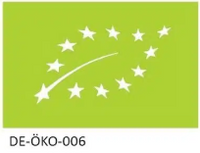More and more people are affected by bone problems. But what many do not know: Vitamin K is exactly the right solution in such cases. Vitamin K prevents calcium from being deposited in the arteries and ensures that the calcium is used to build up the bones. This prevents a heart attack, but also osteoporosis.
What is vitamin K?
Because of well-known vitamins such as vitamin C, vitamin K tends to take a back seat. However, its role in the body is no less important, as a vitamin K2 deficiency would be dangerous. Alongside vitamins A, D and E, vitamin K is also a fat-soluble vitamin. It therefore moves within the so-called LDL molecule and other lipoproteins. Vitamin K was discovered in 1935 when scientists recognized it as a vital nutrient.
The term vitamin K refers to the combination of vitamin K1 (phylloquinone) and vitamin K2 (menaquinone). While vitamin K1 is mainly found in green plants, vitamin K2 is produced by bacteria such as E. coli and, despite having the same effect, is regarded as a more active form of the vitamin. Vitamin K is absorbed in the intestine and transported to the liver.
Interesting fact: In the past, vitamin K2 deficiency was treated with the synthetic vitamin K3 menadisone. However, it is no longer approved due to its harmful side effects, including on the liver. Nowadays, combined preparations with vitamin D and K can help with vitamin K2 deficiency. As pharmacists, we recommend high-quality vitamin D3+K2 drops from the pharmacy, which are bioavailable, laboratory-tested and effective.
What does vitamin K do?
Osteoporosis and arteriosclerosis occur in most people at an advanced age and at first glance have nothing in common. The diseases are only noticeable in the event of a bone fracture or a heart attack. Research into vitamin K2 has shown that, in addition to strengthening the bones and keeping the arteries clean, it can also prevent many diseases of civilization.
Vitamin K2, which is partly produced in the intestine, controls calcium by activating the GLA proteins. These proteins ensure that the calcium absorbed is bound in the bones and that calcium deposits in the arteries are prevented. In this case, a vitamin K2 deficiency could lead to problems with bones and clogged arteries. Vitamin K2 deficiency could also be the cause of blood clotting problems.
The role of vitamin K in the body should therefore not be underestimated, as it fulfills a variety of functions. The most important known functions of vitamin K are clearly listed here:
- One of the main tasks of vitamin K in the body is blood clotting. Without vitamin K, coagulation factors cannot be produced in the body and bleeding cannot be stopped.
- Other functions of vitamin K include the prevention of calcium deposits in blood vessels and cartilage.
- The regulation of cell processes is also dependent on vitamin K.
- Vitamin K helps with repair processes in the liver, kidneys, nerve cells, blood vessels and eyes.
- Thanks to vitamin K, bone loss in women after the menopause is inhibited.
- In general, vitamin K ensures the maintenance of normal bones. Vitamin K can both accelerate bone growth at a young age and slow down bone loss in old age. Vitamin K2 ensures a healthy mineral content in our bone tissue, which ensures firm and strong bones. Without vitamin K2, calcium metabolism does not work and the mineral content decreases. As a result, bones can become porous.
- Vitamin K reduces the risk of developing osteoporosis. With a vitamin K2 deficiency, the calcium is not stored in the bones and this leads to osteoporosis.
- According to some studies, vitamin K is said to have a positive effect on memory, especially in old age.
- Vitamin K is also said to help against high blood pressure and other cardiovascular diseases.
- A vitamin K2 deficiency leads to calcium deposits in our artery walls, which can have a negative effect on the kidneys and brain.
Many people wonder whether arteriosclerosis can be reversed by taking vitamin K2. According to a Dutch study, this is indeed possible. Normally, calcium is deposited in the bones and teeth, while the abnormal deposition of calcium occurs on the muscle layer of arteries and the inner layer and on the heart valves. These deposits can be effectively combated by taking vitamin K2. Vitamin K2 is even said to be able to inhibit age-related arteriosclerosis when taken over a longer period of time.
Bones are not just dead tissue, but can always be rebuilt. This means that taking vitamin K2 supplements makes perfect sense, as our skeleton can be replaced by stable bones every ten years with a sufficient intake. It is important that the bone-forming activity is higher than the bone-breaking activity. Vitamin K2 deficiency, on the other hand, leads to lower bone density and quality. Subsequently, bone loss increases and the risk of fractures rises. The intake of vitamin K2 is therefore very important, especially from the age of 35.
How much vitamin K is needed daily?
The daily requirement of vitamin K is recommended by the German Nutrition Society (DGE), while the values in other countries are somewhat higher. At these doses, there should be no vitamin K2 deficiency. According to the DGE, the need for vitamin K depends on age and gender and is different for different groups*:
- The recommended daily amount for adolescents aged 15 and over and adults depending on age and gender is between 60 and 80 micrograms.
- Pregnant women and breastfeeding mothers may take up to 60 micrograms of vitamin K per day.
- For children, depending on their age, the recommended daily intake of vitamin K is between 15 and 50 micrograms.
- The required amount of vitamin K per day for babies in the first year of life is between 4 and 10 micrograms. Even if newborns receive vitamin K through breast milk, this amount is not sufficient. For this reason, all babies are given additional vitamin K from the first check-up.
Combination preparations with vitamin K2 & D3 from the pharmacy make it easy to divide up the right dose for the daily requirement.
What are the symptoms of vitamin K2 deficiency?
In rare cases, inadequate intake through diet is the cause of vitamin K2 deficiency. Nutritionists claim that a balanced diet provides sufficient vitamin K intake. However, certain illnesses can interfere with the absorption of this important vitamin. Even if vitamin K levels fall, the body can fall back on vitamin K from the intestinal bacteria.
If there is a vitamin K2 deficiency in the body, the blood clotting factors are no longer produced sufficiently and there is a tendency to bleed. Blood clotting can be determined by the doctor using the INR value or Quick value.
These symptoms are signs that a vitamin K2 deficiency is present:
- The first signs of a vitamin K2 deficiency are problems with concentration and listlessness.
- As vitamin K is responsible for blood clotting, a vitamin K2 deficiency manifests itself through very heavy bleeding in the event of injuries.
- Vitamin K2 deficiency also manifests itself in nosebleeds, bleeding of the mucous membranes and bruising. Bruising occurs with vitamin K2 deficiency even with slight pressure.
- If injuries take an unusually long time to heal, this could also be a symptom of vitamin K2 deficiency.
Another symptom of a vitamin K2 deficiency could be bone fractures, because vitamin K is also responsible for bone maintenance.
What are the causes of a vitamin K2 deficiency?
The body of healthy people produces enough vitamin K, but chronic illnesses can lead to vitamin K2 deficiency. If some of the symptoms mentioned are noticeable, the level of vitamin K2 in the body should be checked.
The causes of vitamin K2 deficiency include metabolic disorders. In this case, certain bacteria produce less vitamin K. Medications such as some antibiotics or bile acid binders can also be causes of vitamin K2 deficiency by affecting its production. Diseases and conditions such as liver disease, alcoholism, coeliac disease, but also poor diet and impaired fat metabolism can cause vitamin K2 deficiency.
How can vitamin K2 deficiency be treated?
If a vitamin K2 deficiency is suspected, a visit to the family doctor is recommended in any case. Once the GP has determined the severity of the vitamin K2 deficiency and the causes, appropriate treatment will be prescribed in the form of supplementation or, in severe cases, injections.
Suitable supplements include tablets or vitamin K2 drops as well as combined preparations with vitamin K2 & D3 from the pharmacy. A vitamin K2 deficiency can also be prevented by eating foods containing vitamin K.
Which foods have a high vitamin K content?
The fat-soluble vitamin K is produced by intestinal bacteria and released into the body. However, fat-soluble vitamins hardly ever enter the body from the intestinal tract. This is why the supply through supplements such as vitamin K2 drops and the appropriate diet play an important role.
A balanced diet is therefore the most natural way to combat vitamin K2 deficiency. It is therefore important to include foods that are rich in vitamin K in your diet. This prevents a vitamin K2 deficiency. However, due to the limited storage capacity of vitamin K in the body, plenty of it should be taken in through food.
Vitamin K is mainly found in foods of plant origin. Green vegetables in particular, such as green leaf lettuce and green cabbage (e.g. broccoli, kale) are an excellent source of vitamin K, as are herbs such as chives, seaweed and vegetable oils.
The vitamin K2 variant is produced in the body, but is also found in nature. Vitamin K2 can be better absorbed by the human body. Foods that contain vitamin K2 include meat, eggs, dairy products and natto - a soybean product from Japan that is a little-known source of vitamin K2 in this country.
100 grams of celeriac and an avocado or 200 grams of pollock with approx. 40 grams of Brussels sprouts already contain the daily recommended amount of vitamin K. The same applies to 50 grams of Brussels sprouts or 150 grams of quark.
The list of selected foods with vitamin K content also includes the following foods:
- Raw fruit and vegetables: oranges, pears, cauliflower, strawberries, lettuce, chives, spinach, grapes
- Dairy products: Low-fat quark, herbal cream cheese, drinking milk
- Fish and seafood: Herring, plaice, sprat
- Meat, poultry: chicken liver, veal liver, beef, pork
- Fats and oils: butter, olive oil, grape seed oil
This is not an exhaustive list of foods high in vitamin K, but it includes most foods that you can find in any supermarket and that should be part of your daily menu.
How should foods with vitamin K be stored and prepared?
Eating foods containing vitamin K is very important in the fight against vitamin K2 deficiency, but preparation and storage also play an important role. Vitamin K is very sensitive to light, which is why these foods must be stored in the dark. However, heat, oxygen and cooking hardly reduce the vitamin K content in food.
When are vitamin K supplements useful?
Vitamin K2 deficiency is generally highly unlikely in healthy people. However, there are some exceptions and various causes of deficiency. If foods with the relevant amount of vitamin K do not cover the requirement or certain medications or illnesses cause vitamin K2 deficiency, it is advisable to take vitamin K supplements.
Chronic diseases of the digestive tract or the intake of antibiotics can cause an absorption disorder and thus cause a vitamin K2 deficiency. Vitamin K supplements such as vitamin K drops from the pharmacy are useful in such cases.
Vitamin K drops are administered to newborns as part of the first check-up and the two follow-up examinations. The reason for this is that babies are initially undersupplied as they do not have sufficient vitamin K stores. Incidentally, there are only small amounts of vitamin K in breast milk. Without the vitamin K drops, the risk of cerebral, skin and intestinal bleeding in babies would be increased.
What should I watch out for with vitamin K products?
There is no need to worry about an overdose when taking vitamin K, as the vitamin K compounds from microorganisms and plants are safe for healthy people. Only isolated cases of allergic hypersensitivity reactions have been reported. For this reason, the European Food Safety Authority (EFSA) has not set an upper limit for the intake of vitamin K.
The vitamin bonds for vitamin K phylloquinone (phytomenadione, K1)
and menaquinone (K2) are approved in Germany and the EU in accordance with EU Directive 2002/46/EC, Annex II (version dated 05.07.2017). No distinction is made between vitamin K1 and vitamin K2 in the intake recommendations, even though they have different physiological meanings and bioactivity.
If so-called vitamin K antagonists are prescribed for the prophylaxis of thrombosis, for example, blood clotting is delayed due to the inhibition of vitamin K absorption. In such cases, dietary supplements such as drops or capsules containing vitamin K would be useful, but these should not be taken without consulting a doctor. The uncontrolled intake of food supplements with vitamin K could jeopardize the therapy in the long term.
For this reason, the Federal Institute for Risk Assessment has recommended a maximum amount of 80 µg in food supplements. There should also be a warning on the packaging of food supplements containing vitamin K that the preparations should not be taken without first consulting a doctor.
Which medicines are vitamin K antagonists?
Vitamin K antagonists are antagonists of vitamin K or drugs that counteract the effect of vitamin K. Such drugs are administered to patients suffering from certain diseases or who need to reduce the risk of thrombosis or embolism after an operation.
Thromboembolic diseases that are treated with vitamin antagonists include venous thrombosis, pulmonary embolism, hereditary thrombophilia, atrial fibrillation, heart valve replacement and cardiomyopathies. The aim is to reduce the blood's ability to clot and counteract thrombosis.
Vitamin K antagonists have a very pronounced anticoagulant effect and can increase the risk of bleeding in the gastrointestinal tract, the urinary tract and intracranial areas. If the bleeding becomes serious, vitamin K must be taken.
Vitamin K antagonists basically consist of 4 essential active ingredients: Acenocoumarol, Dicoumarol, Phenprocoumon and Warfarin. Examples of such drugs can be found in Curamine or Heparin.
What is the connection between vitamin K and vitamin D?
Vitamin D3 is partly absorbed through food, but it is difficult to cover the entire daily requirement. The sun is the most important source of natural vitamin D and our skin produces vitamin D3 itself when exposed to sunlight. However, in most parts of Germany, sunlight is not enough to cover the vitamin D requirement for a long time.
In addition to the lack of sunlight, the fact that many people work indoors also stands in the way of adequate vitamin D3 intake. As it is impossible for most people to spend long periods of time in the sun, supplementation is in most cases the only way to meet vitamin D requirements.
The body needs vitamin D3 to strengthen the immune system and bone health, but vitamin K2 is required for the utilization of vitamin D3. Vitamin D ensures the distribution of calcium, while vitamin K2 is the antagonist and ensures the breakdown of calcium in the body. Vitamin K2 and vitamin D are both fat-dissolving vitamins and are often associated with each other. For this reason, it is important to take vitamin K2 at the same time as vitamin D.
This fact has been recognized by manufacturers of dietary supplements and a variety of combination products have been launched on the market.







